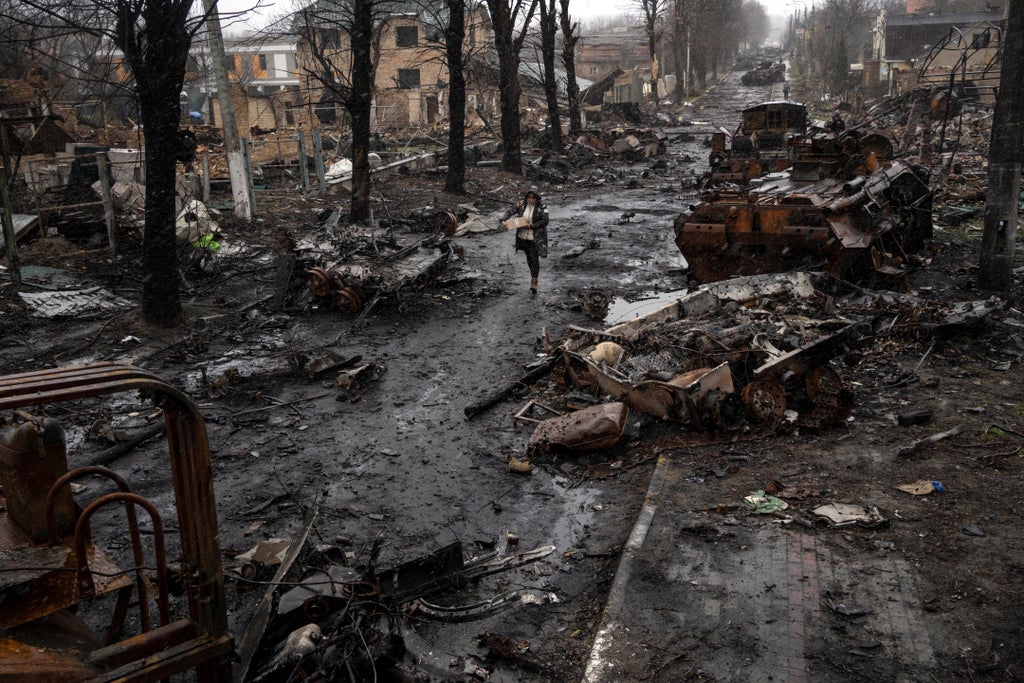
Western powers have vowed to hold Russia accountable for the killing of civilians in the town of Bucha and other areas around Kyiv, accusing Moscow of a “terrible” war crime.
Officials in Ukraine said that troops had found civilian corpses with bound hands, gunshot wounds to the head, and showing signs of torture, after Russian soldiers withdrew from the outskirts of the country’s capital. The Ukrainian government has accused Russia’s armed forces of carrying out a “massacre” and “genocide”.
After Ukraine announced on Saturday that it had reclaimed control of the Kyiv region – the first time it has done so since Vladimir Putin launched his invasion on 24 February – the mayor of Bucha, a liberated town 37 km northwest of the capital, said that hundreds of its residents had been killed by the Russian army.
Ukrainian prosecutors investigating possible war crimes by Russia have so far found 410 bodies in various towns near Kyiv, the country’s prosecutor general Iryna Venedyktova said later on Sunday.
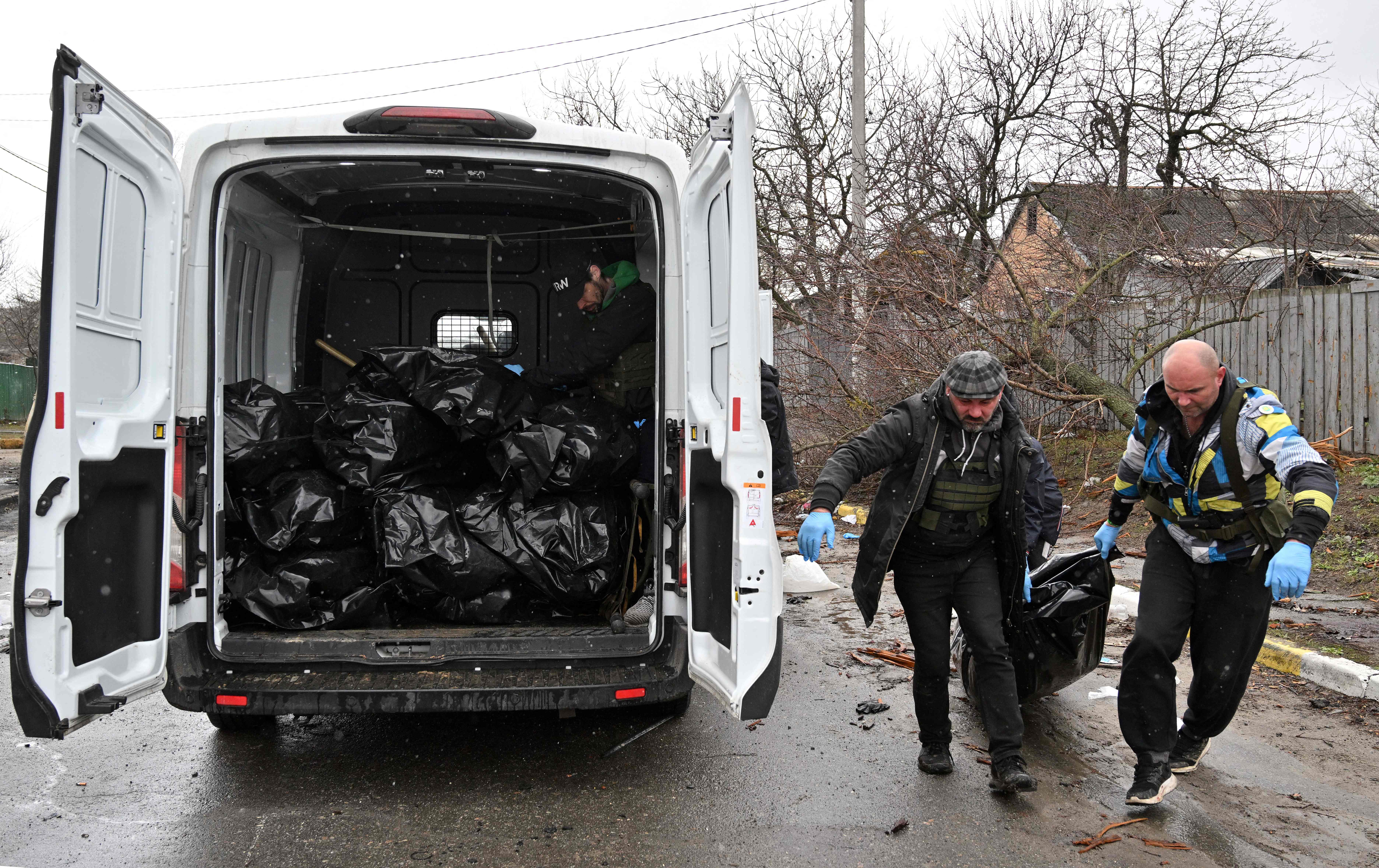
The photographs of bodies strewn across the street, wrapped in bin bags and buried in mass graves, in Bucha as well as in the Kyiv suburbs of Irpin and Hostomel, spurred calls from officials in Ukraine, and vows from ministers across Europe, to impose tougher sanctions on Moscow.
Oleksiy Arestovych, an adviser to Ukrainian president Volodymyr Zelensky, said the scores of dead looked like “a scene from a horror movie”, while Ukraine’s foreign minister, Dmytro Kuleba, said: “Bucha massacre was deliberate. We are still gathering and looking for bodies, but the number has already gone into the hundreds.
“Dead bodies lie on the streets. They killed civilians while staying there and when they were leaving these villages and towns.”
Mr Kuleba urged the G7 nations to impose “devastating” new sanctions on Moscow that would target its oil, gas and coal industries, goods exports, and financial sector, and asked the International Criminal Court (ICC) to collect evidence of what he called war crimes.

In an interview with CBS News later on Sunday, Mr Zelensky himself said Russia was committing genocide against his country.
“Indeed, this is genocide. The elimination of the whole nation and the people,” he said, speaking through a translator. “We are the citizens of Ukraine and we don’t want to be subdued to the policy of Russian Federation. This is the reason we are being destroyed and exterminated.”
Russia’s defence ministry denied that its forces had killed civilians in Bucha, and described photos and videos from the town as “another staged performance by the Kyiv regime for the western media”.
Moscow has previously denied targeting civilians, and has rejected allegations of war crimes in what it calls a “special military operation” aimed at demilitarising and “denazifying” Ukraine.
The foreign ministers of France, Germany, the UK and the US were among those to condemn Russia over the reports from Bucha.
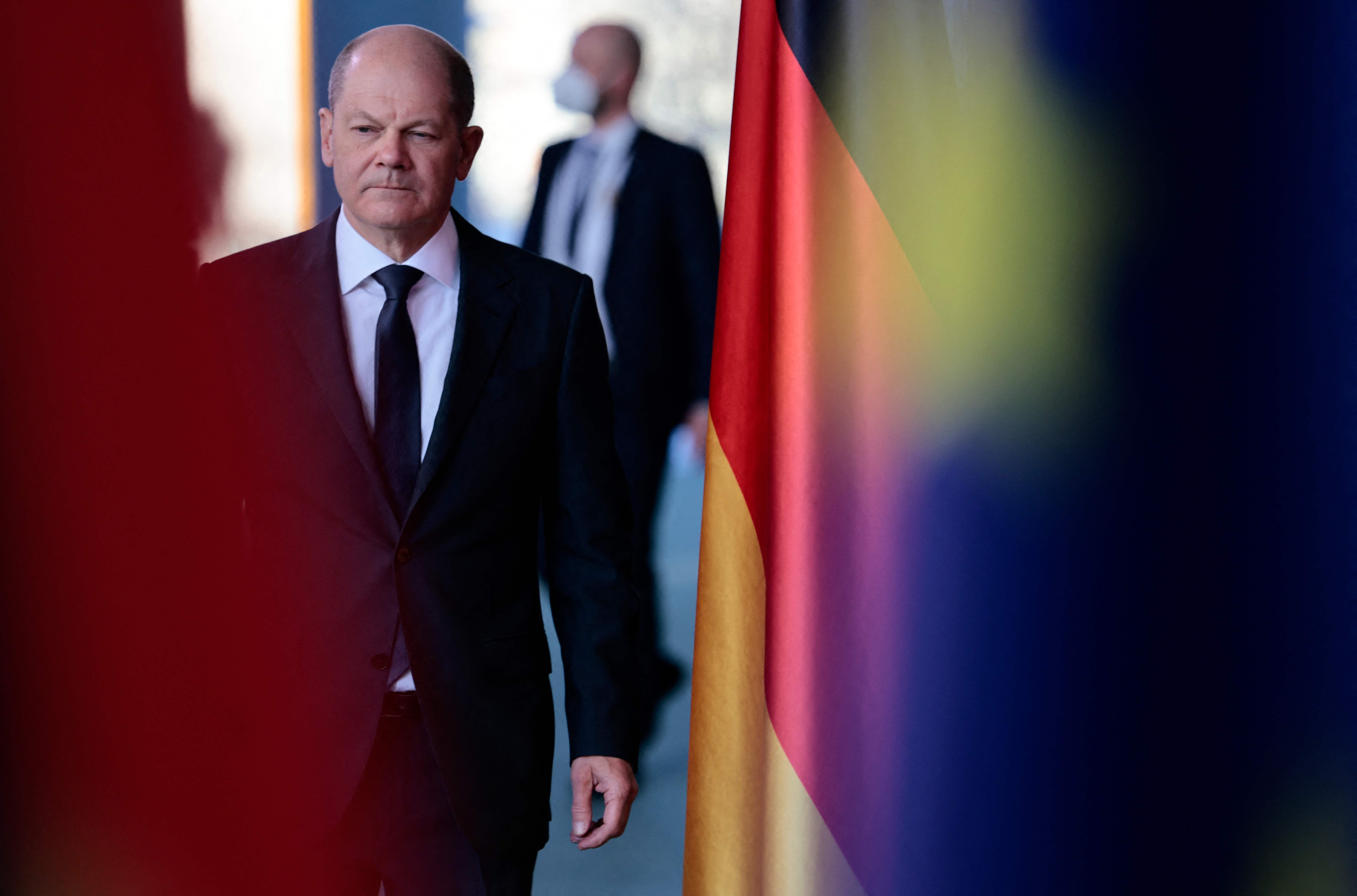
US secretary of state Antony Blinken said the images of dead civilians were a “punch in the gut” and that those responsible must be held accountable.
UK prime minister Boris Johnson denounced Russia’s “despicable attacks” against civilians in Bucha and Irpin, describing them as war crimes and pledging tougher sanctions against Moscow along with increased military support for Ukraine. The British government has vowed to support any war crimes investigation undertaken by the ICC, and Mr Johnson said it would provide additional funding and investigators for the court.
Earlier, foreign secretary Liz Truss said that “indiscriminate” attacks by Russian forces against innocent civilians must be investigated as war crimes, and that the UK would “not rest” until those responsible for the “atrocities” in Ukraine had faced justice. Ms Truss added that Russia would not be allowed to cover up its involvement by means of “cynical disinformation”.
French president Emmanuel Macron, who has spoken frequently with Mr Putin in recent weeks, called the pictures “unbearable” and said that Moscow “will have to answer for these crimes”, while the German vice-chancellor Robert Habeck said the killings were a “terrible war crime [that] cannot go unanswered”.
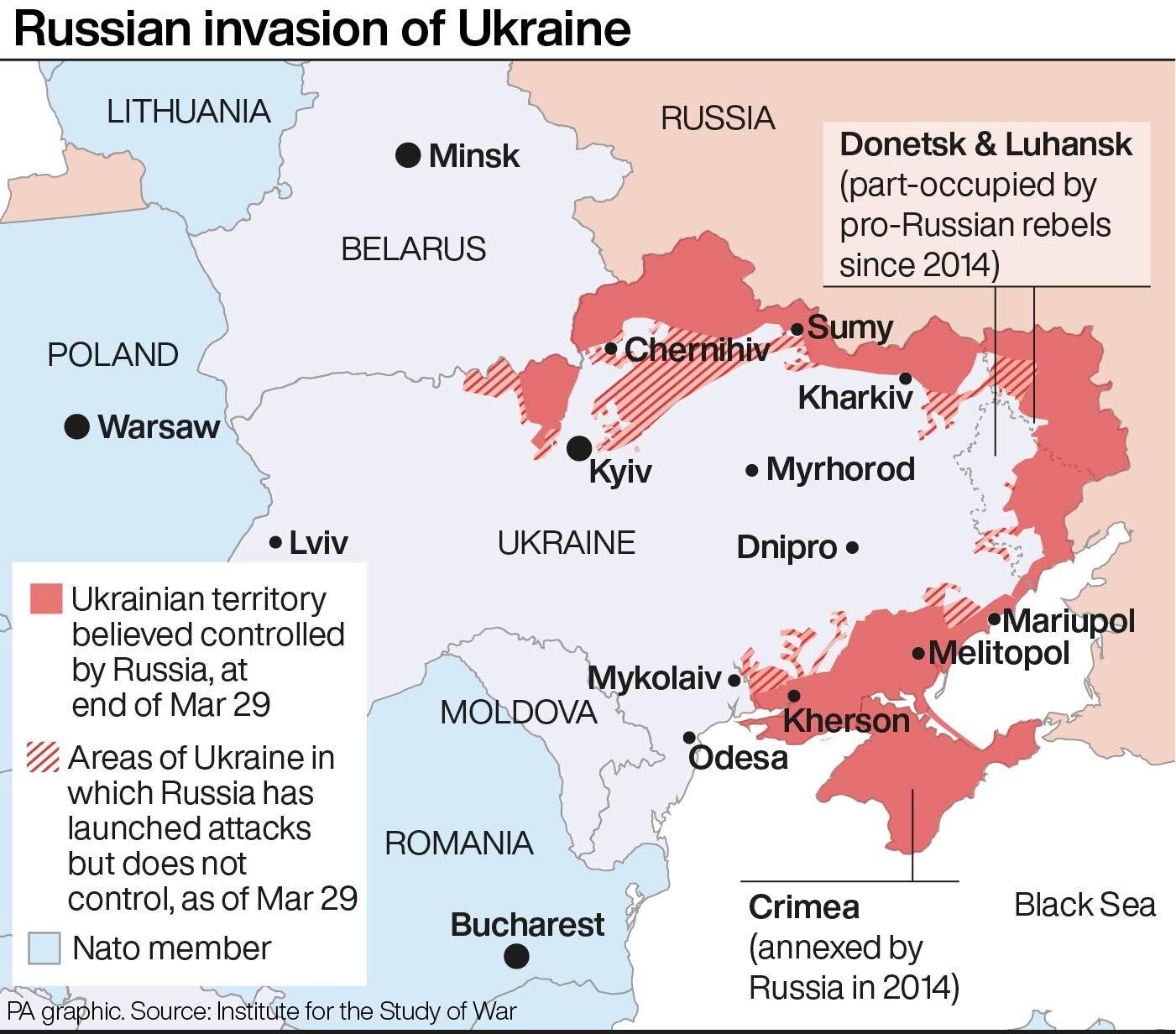
Later, Germany’s chancellor Olaf Scholz announced that western allies would agree further sanctions on Russia in the coming days, in response to its continuing invasion and the “atrocities” committed by its forces in Bucha.
Nato head Jens Stoltenberg described the killings as “a brutality against civilians” not seen in Europe for decades, while UN chief Antonio Guterres said he was “deeply shocked” by the images and called for an independent investigation into the deaths.
Meanwhile, fighting continued across Ukraine on Sunday in the sixth week of a war that has driven more than 4 million people out of the country as refugees and uprooted at least 6.5 million people within the country.
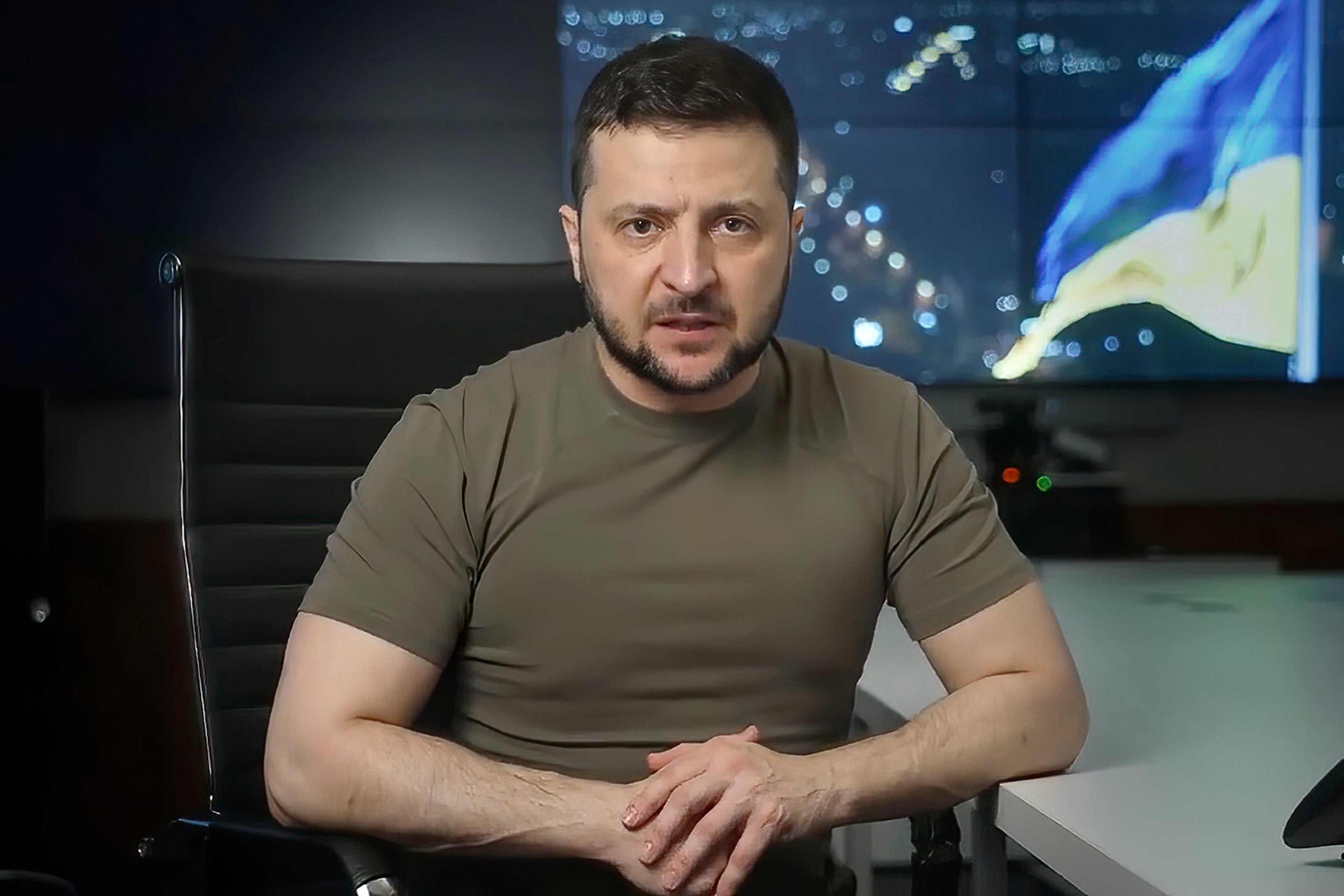
Missiles struck near the southern port of Odesa, with Russia saying it had destroyed an oil refinery and fuel depots used by the Ukrainian military to supply its troops.
The regional governor in northeastern Kharkiv said that Russian artillery and tanks had launched over 20 strikes on Ukraine’s second-largest city and its outskirts over the past day, killing an unstated number of civilians and injuring 23.
Evacuation efforts in southeastern Mariupol and nearby Berdyansk were set to continue, with a convoy of buses being prepared with help from the Red Cross, although The Independent understands that hopes are low after several previous attempts have failed.
The strategic port city is Russia’s main target in the Donbas region, and tens of thousands of civilians there have been trapped for weeks with very little to eat or drink. Several residents who had managed to escape the city by their own means told The Independent on Saturday that those who remained there had been forced to bury the bodies of those killed by shelling in graves they had dug in gardens, parks, and the sandpits of nursery schools.
There was little sign of a breakthrough on Sunday in efforts to negotiate an end to the conflict, although Russia’s chief negotiator, Vladimir Medinsky, said talks were set to resume on Monday via videoconference.
Ukrainian negotiator David Arakhamia said enough progress had been made for direct talks between Mr Zelensky and Mr Putin.







